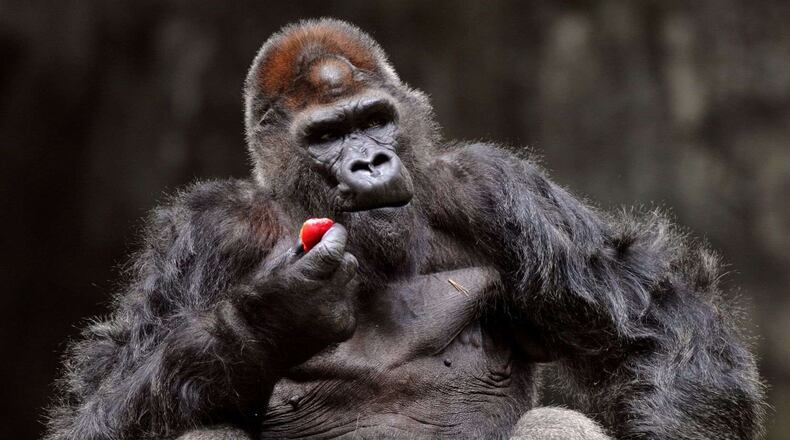Zoo Atlanta is treating 13 western lowland gorillas who have tested positive for COVID-19.
The gorillas were tested after they demonstrated mild coughing, runny noses and loss of appetite. Atlanta’s animal handlers took fecal samples and nasal and oral swabs from the gorillas and sent the samples to the Athens Veterinary Diagnostic Laboratory at the University of Georgia, which returned a presumptive positive result.
Atlanta is waiting for confirmation from the National Veterinary Services Laboratory in Ames, Iowa, which also received samples.
Atlanta’s gorillas are apparently the second group of great apes infected by the coronavirus, according to Dr. Sam Rivera, senior director of animal health at Zoo Atlanta.
A troop of eight gorillas at the San Diego Zoo Safari Park were treated for the virus in January. One San Diego silverback received an experimental antibody regimen, and all recovered.
The 20 gorillas at Zoo Atlanta are divided into four troops, and members of every troop have shown evidence of infection. Rivera said it is likely that the virus made its way into the gorilla population from an animal care staffer who was asymptomatic when she came to work, but was tested later and was shown to be positive.
That staffer had already been vaccinated and was wearing the protective gear that has long been part of Zoo Atlanta protocol, including gloves, mask and a face shield.
There is no requirement that members of the Zoo Atlanta staff get vaccinated, though a high percentage of the staff has been vaccinated, said spokesperson Rachel Davis.
Because the gorillas live together in close proximity, it is impossible to isolate the affected members, said Rivera. All will be tested. As the affected gorillas recover from their symptoms, the staff plans on vaccinating the gorilla population with the Zoetis vaccine, which was developed for veterinary use and had been used at the San Diego zoo on its ape population.
Zoo Atlanta has already vaccinated its Bornean and Sumatran orangutans, its Sumatran tigers, its African lions and its clouded leopard.
Atlanta’s veterinary team is treating some of the gorillas at risk of serious complications with monoclonal antibodies, starting with the most senior members.
Those include Ozzie, who, at 60, is the oldest male gorilla in captivity. Rivera said Ozzie is showing mild symptoms. “We don’t feel that we’re out of the woods,” he added. “We’re taking it on a day by day basis.”
Humans are known to infect animals, but the distances between visitors to the zoos and the apes would make animal-to-human transmission extremely unlikely. The CDC says animals don’t play a significant role in spreading COVID to humans.
Other zoos have begun vaccinating at-risk animals, including the Detroit Zoo, which announced plans to vaccinate its gorillas, chimpanzees, tigers and lions.
COVID-19 has been known to infect tigers, lions, mink, snow leopards, cougars, dogs and domestic cats.
About the Author
The Latest
Featured



